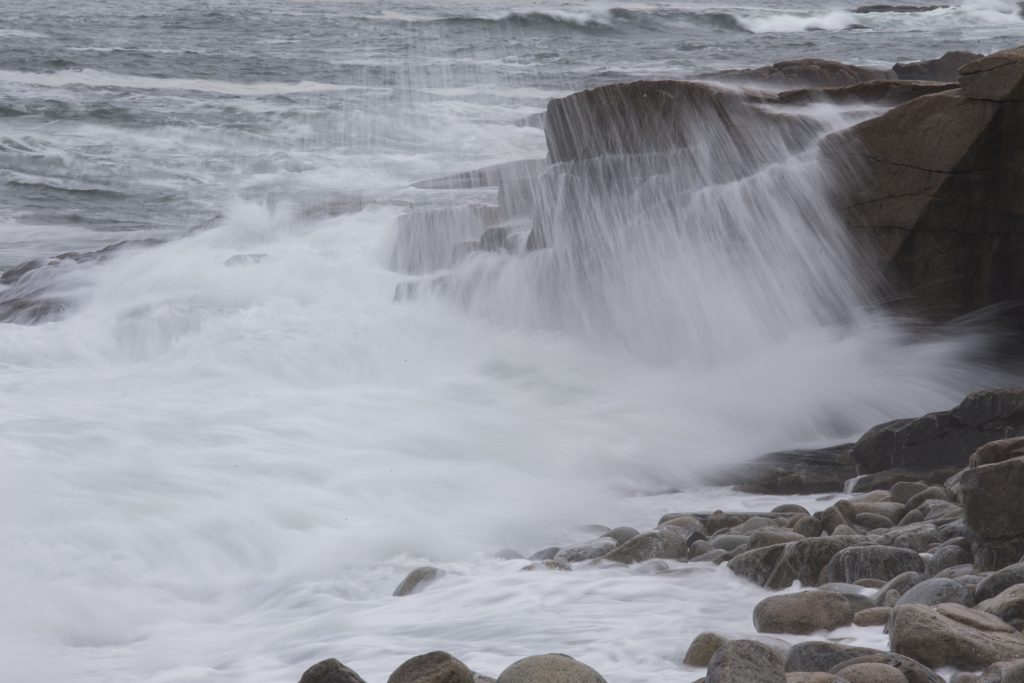Celebrating God’s oceans
One week before World Ocean Day (June 8), a delegation of faith leaders convened by Creation Justice Ministries met with Dr. Rick Spinrad, Administrator of National Oceanic and Atmospheric Administration (NOAA), to urge the strongest possible protections for Stellwagen Bank Marine Sanctuary. Located east of Boston and renowned among whale watchers, Stellwagen Bank Marine Sanctuary is New England’s only national marine sanctuary. NOAA recently released a draft management plan to update the objectives and activities within Stellwagen Bank Marine Sanctuary and has sought public comment.
This is an excellent time to take stock of the health of our oceans. Choking in plastic, ransacked for its resources, throbbing with noise, relentlessly warming, and growing increasingly acidic, the oceans are under heavy assault from human activities. Decisions made today about the management of Stellwagen Bank will make a critical difference to the sanctuary’s health for years to come.

Creation Justice Ministries – which represents the Creation care and environmental justice policies of 38 major Christian denominations and communions across the U.S. – is playing a leading role in conveying a Christian perspective on the management of our oceans, including Stellwagen Bank. In its public comment to NOAA, Creation Justice Ministries recognized the degraded state of the sanctuary’s habitat and wildlife and highlighted not only the legal but above all the moral authority of NOAA to protect the health and flourishing of Stellwagen Bank. CJM followed up on this public statement by arranging for several faith leaders to speak with Administrator Spinrad about the spiritual and moral values that should guide his decision-making.
At our meeting on June 1, I offered the following prayer and reflection:
Dr. Spinrad, we come to you as Christians who believe that God entrusted the world to human care. I invite us to take a moment to pray.
Gracious God, you love the world you created in all its wild, beautiful, and ever-evolving diversity. We know, as the Psalmist says, that “The Earth is the Lord’s and all that is in it” (Psalm 24:1). Amid so many assaults to the web of life, help us to cherish what the Psalmist calls “the great and wide sea with its living things too many to number, / creatures both small and great” (Psalm 104:26). Help us, we pray, to protect the Stellwagen Bank Marine Sanctuary as a precious, unique, and fragile part of the “great and wide sea” that ultimately belongs to you, our loving God. Amen.
I want to say a word about “sanctuary.” What is a sanctuary? It’s a consecrated place, a place set apart for worship, a place that is holy and deserves to be treated with reverence and respect. This marine sanctuary not only protects diverse and endangered species, offering refuge and shelter – it also protects the human spirit. It’s a sanctuary for our souls: a place to experience the gift of joy and wonder in all God’s works, a place to encounter the Divine. Stellwagen Bank Marine Sanctuary isn’t only scientifically and economically important – it also has spiritual and religious value. Let’s safeguard this precious corner of God’s creation and honor our responsibility to God, future generations, and our more-than-human kin. Let’s put the sacred back into “sanctuary.”
Dr. Spinrad and his team listened thoughtfully to all the speakers, and he expressed hope that NOAA and faith-based communities could support each other in the urgent work of protecting oceans. I look forward to discovering how science and faith can work together to induce human beings to live more gently on God’s good Earth.
As people of faith, we join with the psalmist in praising God – “Come, let us sing to the LORD; let us shout for joy to the Rock of our salvation” (Psalm 95:1) – and in affirming that “The sea is [God’s], for [God] made it” (Psalm 95:5). What would it look like to “manage” the oceans, and ocean sanctuaries, in a way that honors them as a sacred gift from God?
